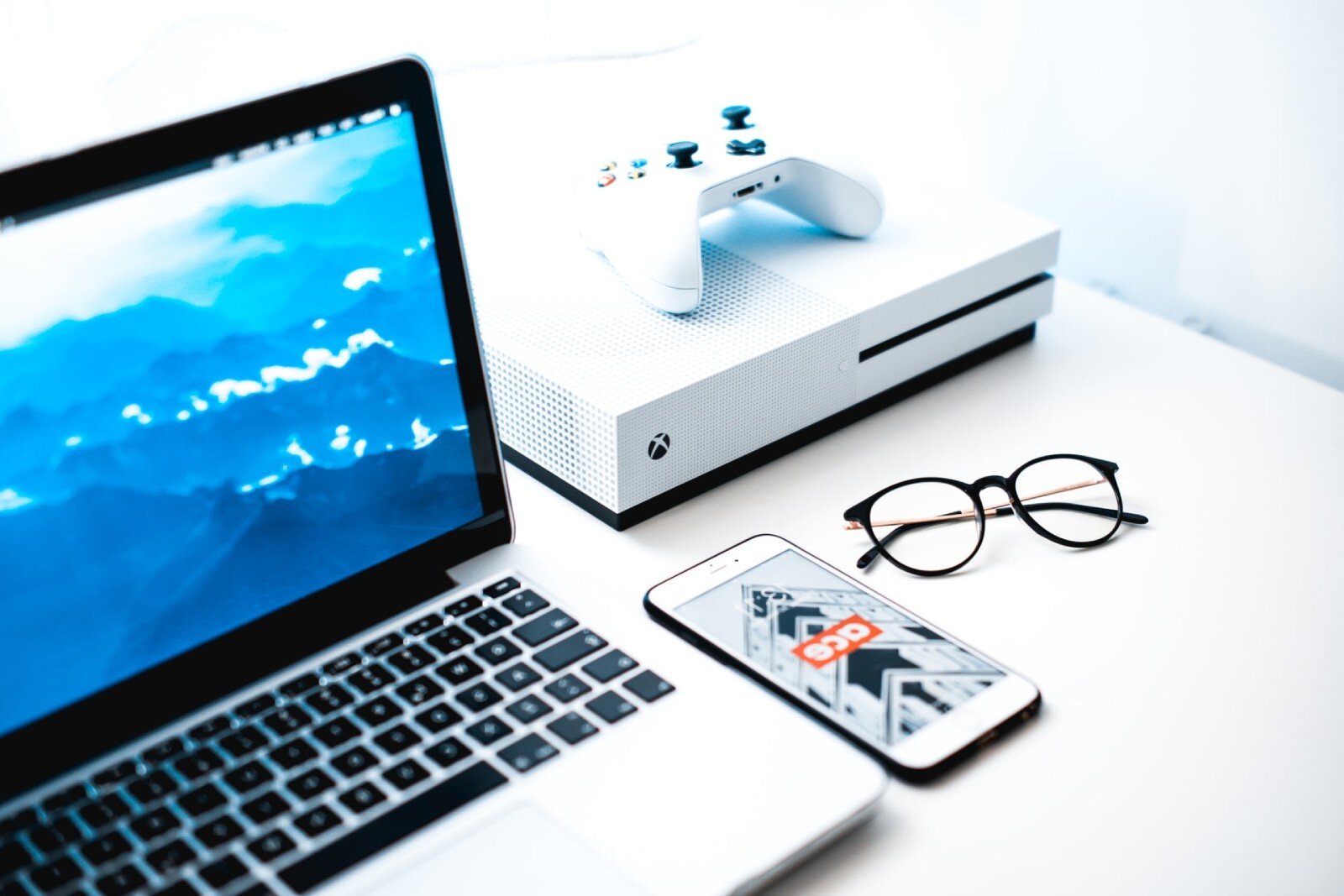
Find The Ideal Blue Light Glasses in Vancouver
More and more patients are recognizing the value of blue light lenses.
It is safe to say that we are living in a digital world. We are constantly connected to our digital devices throughout the day and this means that our eyes are concentrated on screens.
Most of the blue light that is visible to us is naturally emitted from the sun. However, with the introduction of electronic devices, our eyes are now exposed to even more blue light throughout the day.
This could be a contributing factor in headaches, dry eyes, blurred vision, and eyestrain.
What Exactly Is Blue Light?
Blue light is part of the visible spectrum. It is high-energy light located on the spectrum just before the potentially harmful ultraviolet light. Since it is part of the visual spectrum, our eyes are designed to perceive this light, and so it passes through the eye and onto the retina.
In humans, the amount of blue light transmitted is age-dependent. In young children, more than 65% of blue light is transmitted through the eye. This transmission rate decreases over the course of one’s life, such that in the sixth decade of life it may be expected that only 20% of the light is transferred to the retina due to the eye’s natural yellowing, which absorbs more of the blue light. As a result of this natural process, younger people may be more susceptible to the effects of blue light.
What Are Blue Light Lenses?
Lenses with a “blue light filter” have a special coating applied to prescription and non-prescription lenses in an effort to decrease the percentage of blue light that enters a wearer’s eyes. It works by reflecting the blue light emitted by digital devices. Most blue light filters come with other benefits such as anti-glare and scratch resistance, ultimately giving you even clearer vision.
When Do You Need Blue Light Glasses?
After an eyewear consultation with one of our frame stylists, a pair of blue light prescription lenses can be put into your chosen frame. For patients who are specifically looking for computer glasses, or indeed spend much of their workday in front of computers or tablets, blue light filter lenses are highly recommended.
Upon examination, many people can see a sort of a blue sheen when viewing blue light lenses from certain angles. For some, this may be a nuisance. Thankfully, as technology improves and laboratories invest more into research and development, more and more lenses are constantly coming into the market with fewer shortcomings such as this blue sheen.
It is important to note that blue light filter glasses may not be for everyone. For example, designers and colorists who require precise color vision may not be the best candidates for blue light lenses, as these may alter the perception of some color shades.
Whether you require lenses with a corrective prescription or not, blue light filters are available to both adults and children. You can have glasses with blue light filters only, and with no prescription.
The Vision Council reports that one in four children spends more than three hours per day in front of a digital device. Ensuring that our children are getting regular eye examinations and taking periodic breaks from digital devices is of course a piece of the solution. Another key piece of the solution would be considering blue light filters to protect the younger eyes of our children during exposure to device screens.
What Our Clients Are Saying:
Do Blue Light Glasses Really Work?
Yes! These do help to reduce digital eye strain and also help with your natural sleep cycle.
One of the physiological benefits of visual light, specifically natural blue light, is to boost people’s energy, alertness, and mood. However, elongated exposure to the waves transmitted through screen devices especially during the evening can disrupt circadian rhythm and cause health effects including the suppression of melatonin in the brain, keeping us up later.
High On Blue Light
We are not designed to be using our phones and tablets six inches in front of our faces over long periods of time. Using digital devices during the evening hours, before going to sleep, exposes us to a high amount of unnaturally found blue light at a time when our bodies traditionally prepare for rest. The sun is setting, and with it, blue light diminishes, and our bodies begin to prepare for their natural sleep cycle.
Now add two hours of Netflix, half an hour of Instagram reels, some TikTok videos, and catching up on our emails, and before we know it we are “high on blue light” right around the time we want to go to sleep. Prescription or non-prescription glasses with blue light filers are pretty much an essential tool for living in today’s world.
Trends also seem to show more and more patients are recognizing the value of blue light lenses.
Prolonged exposure to blue light also causes digital eyestrain. Many companies have now come out with tinted screen modes to combat digital eyestrain. Blue light filter glasses have the same function but without the consequence of changing your screen’s color code.
To find out if blue light glasses are for you, come in and talk to one of our doctors of optometry during an Eye exam and visual needs consultation appointment, offered online here.



